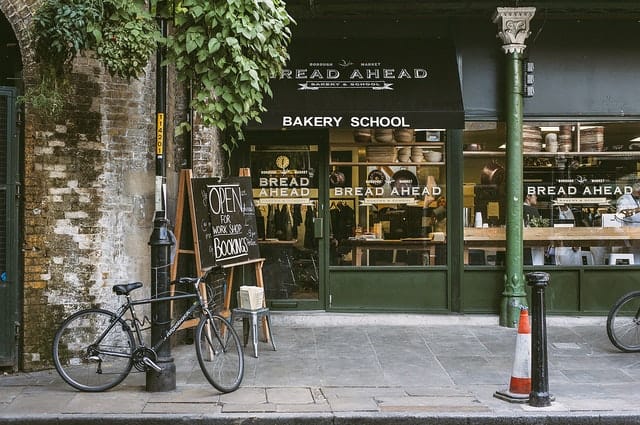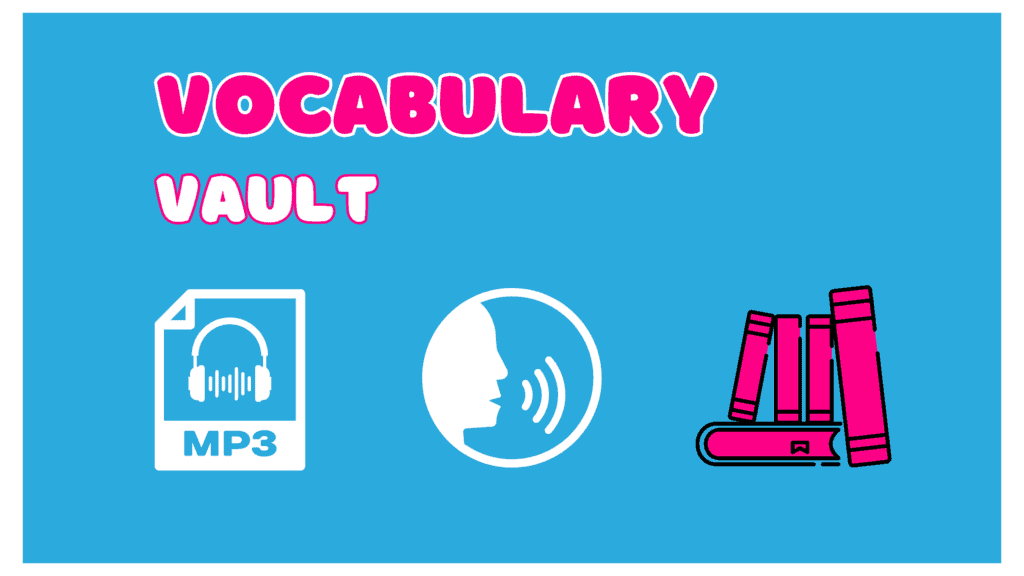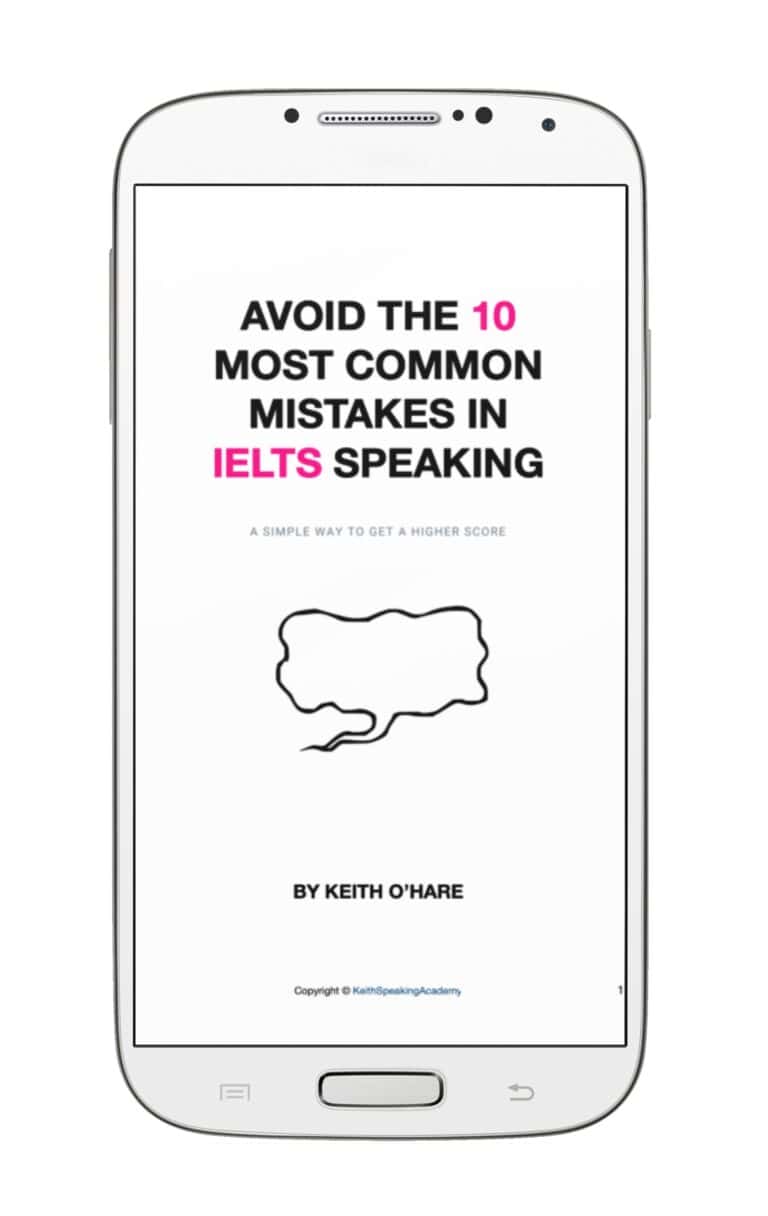IELTS Speaking Lesson about Cities
👇 Take this lesson with you! 👇
Table of Contents
Introduction
How well can you talk about cities in IELTS Speaking? If you want to expand your vocabulary and get some good ideas to answer common questions, read on!
In this IELTS Speaking lesson on the topic of Cities, you will learn how to talk about your city and the problems of living in cities.
Describing cities in IELTS Speaking
When describing cities in IELTS Speaking, you may want to talk about the following,
- Location / Size
- History
- Industry
- Interesting places
- Weather
Here are some useful phrases to talk about some these different aspects.
Industry
If asked about the products that are produced in your city, or what kind of work people do there, you can talk about different kinds of industries, as below…
Primary industries (dealing with raw materials)
- Agriculture
- Mining
- Farming
- Fishing
- Oil and Gas
The manufacturing industry
The service industry
- Tourism
- Hospitality
- Recreation
- Food and beverage
The finance industry
The IT industry
The entertainment industry
My hometown relies mainly on tourism / the service industry
It’s famous for tourism/ the service industry
Its main source of revenue comes from tourism/ the service industry
The economy depends mainly on tourism/ the service industry

Collocations to describe cities
Here are some collocations to describe the city where I live, Santander, in Spain.
- Bustling center
- Urban living
- Reliable public transport
- Long opening hours (shops and restaurants)
- Upmarket shops
- Pricey /overpriced restaurants(expensive)
- Lively bars
- Fashionable clubs
- High-rise flats
Adjectives to describe cities
For good points of cities you could use the following adjectives:
- picturesque
- historic
- spacious
- elegant
- magnificent
- lively
The comfortable suburbs (the suburb is just outside the city center)
For the negative points of cities you could use the following adjectives:
- deserted( no one on the street at night) city
- packed (very crowded)
- filthy (very dirty)/
- run-down ( in a very bad condition)
- sprawling city
- a shanty town (=houses made of discarded materials, e.g.tin cardboard, plastic)
Bustling (=with lots of movement) can be positive or negative

Cities and their problems
Urban wasteland (in bad condition)
No-go areas (with the high crime)
Run-down buildings (falling apart)
Deprived areas (without necessary things, e.g. enough money, good living conditions)
- Bumper-to-bumper traffic all day long
- The volume of traffic (amount)
- Exhaust fumes
- The incessant roar of trucks and buses (very loud noise)
Describe the city where you live
Here is a description of the city where I peresently live: Santander, in Spain.
It has rather dreary weather = dull weather
Mild climate = not hot or cold
Overcast (adj).= cloudy
As for the weather, it’s often overcast in my city.
The city looks over the bay
Holiday-makers = people on holiday
People like to nibble snacks in the bars = to eat in small bites (usually snacks)
Local people love going for a stroll in the afternoon = go for a short walk
Big attraction = popular attraction
There is a lot of heavy rain
It often throws it down = it often rains heavily
Pronunciation Files For Vocabulary From My Best Live Lessons
Use Words EASILY in English Conversations!
More Live Lessons For You
If you liked this lesson, leave a comment below!
There are more lessons you can follow in the links below too.
CHILDHOOD in IELTS Speaking. Learn different activities children do, toys, changes in children nowadays.
ENVIRONMENT in IELTS Speaking. Learn different ways to protect our environment and discuss it with idioms and vocabulary in this lesson.
HOLIDAYS in IELTS Speaking. Discover the 10 things the British do on holiday and learn the useful vocabulary and idioms to talk about it.



I am Asian and this information is very helpful. easy and widely explained. I am proud of you. Do you have books and telegra channel? thank you in advance
Thank you. I have different PDFs that you can download from the website. A lot of free lessons are here: https://keithspeakingacademy.com/ielts-speaking-free-live-lessons/
Thank you Keith for teaching me good English am watching you every day.I want to sit for ielts general which can lead me to move to Canada if i pass well.Pease help me in all modules and how i can join your studies.THANKS AGAIN.
So pleased you like the lessons. If you want to follow an online course, all the details are here: https://courses.keithspeakingacademy.com/courses
I am extremely pleased because i was able to find your YouTube channel. you have organized your live lessons precisely so far . I have learnt numerous words from your lessons. I would love to learn more vocabulary lessons in idioms and phrasal verbs. none other than English speaking academy is the best YouTube channel which can be useful for the students who are doing IELTS as well as doing Cambridge Advanced English exams. break a leg!!!
So kind and delighted you like it!
We use “over” with “advantage” when we want to emphasize a difference
like “This company can offer some great advantages over the last one”
What do we use with “disadvantage”?
We can use ‘compared to’. ” For example, ‘These are some of the clear disadvantages of this company, compared to the last one’
Thanks for your useful lessons…I follow your lessons,vidoes….
Delighted to hear that, thanks for studying with me!
Thanks a lot Keith for the lovely lessons😊
My pleasure
Absolutely I enjoy much more your lessons. Your clear presentation at any topic is always felt lively.
Pleased to hear that.
Thank u sir, this is very helpful lesson.
Ur all the lessons are very helpful. I go through Your each videos on you tube.
So pleased to hear that – it’s great that you are studying with me.
Thanks teacher keith for your unwavering supports and and efforts thank you more than you can imagine
My pleasure, I am pleased it can help!
Thank you a lot.
My pleasure
Hello Keiths, I had the honor to know you thanks to my English teacher, one of the best in the world Fatima, it is a pleasure to watch your videos every day, in France the methodology to learn the English is not suitable. People like you and Fatima are the keys to great success. I greet you and thank you for your investment.
Thanks for the comment and so pleased you like the lessons!
Great lesson.
Thank you Keith.
Am preparing for my test in July.
Hello keith sir
you are a great teacher.I haven”t enough words to appreciate your great service.I got lot from your lessons.I am studying for IELTS exam next months .Thank you very much sir.
Prathiba
Thanks and best of luck with your test!
Hi Sir Keith,
I am so glad that i seen you in you tube when i was searching for the lessons about IELTS. You teachings are so great and that you teaches you student to clear! I are absolutely amazing! God bless you more!
What i meant for my second to the last sentence is that… you are absolutely amazing! Thanks for sharing your talent.
I think you are also absolutely amazing too Marife 😁. Thank you so much for your comment
Thank you Sir, your lectures are indeed helpful.
Glad you like them Christian!
hello Keith. I am Asmi, I am waiting the following suggestions
This is top notch! You are an innate teacher indeed. You have nailed it. Thank you so much. Meanwhile, I am preparing for my IELTS exam by next month and am in dire need of your best wishes. Regards
This is top notch! You are an innate teacher indeed. I love this lesson. You have nailed it. Meanwhile, I am preparing for my IELTS next month, and I am in dire need of your good wishes.
I ready to be the first to know
The lesson in the world
The new version of the English
Thanks